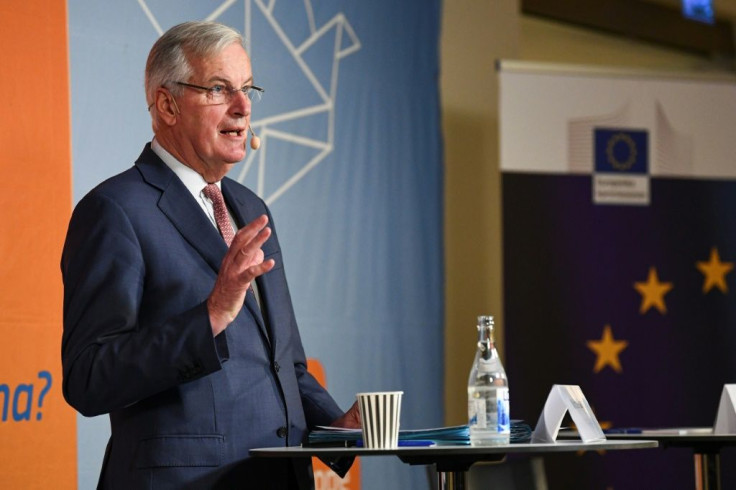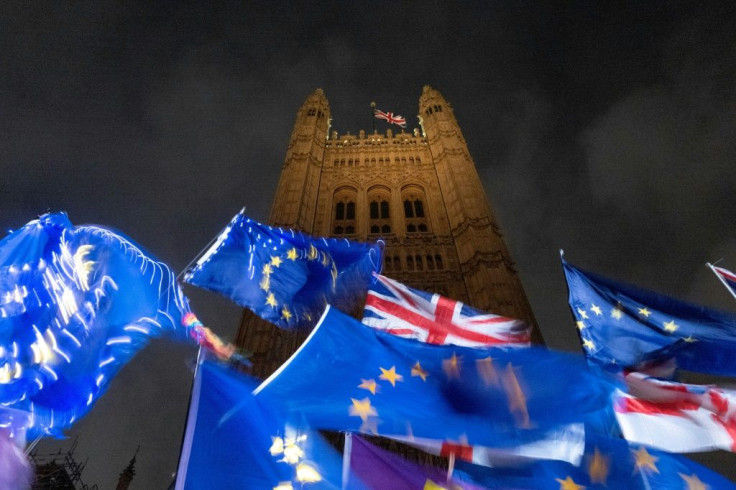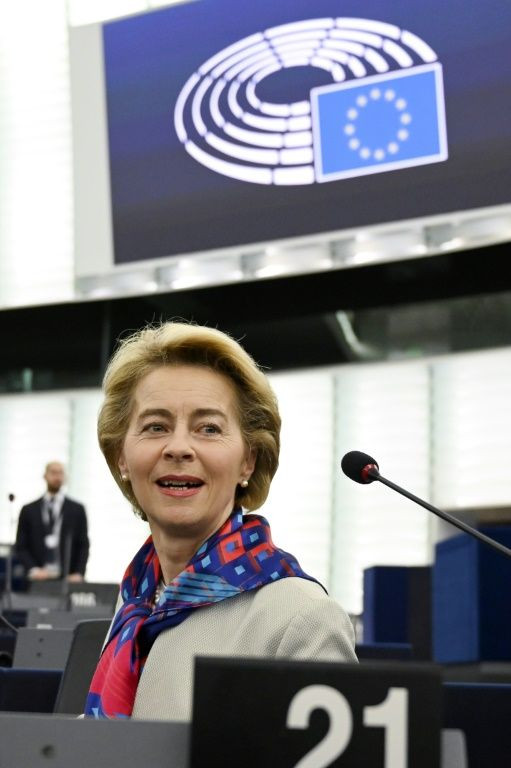Barnier Warns Of Post-Brexit 'Consequences' For UK, EU Citizens
Michel Barnier, the EU's chief Brexit negotiator, warned Tuesday that "concrete consequences" would follow for EU and UK citizens as Britain does away with freedom of movement.
Speaking at a European Parliament debate on the issue in Strasbourg, Barnier stressed "we will continue to defend the interest of our citizens" as Brexit moves into the next phase of settling the terms of future relations between the EU and Britain.
The United Kingdom is scheduled to leave the European Union in just over two weeks, shrinking the bloc to 27 member states.

Under the terms of a withdrawal agreement, Britain will have a transition period to the end of this year to find agreement with the EU on how their relationship will work going forward.
Issues to be negotiated include trade, fishing, security, transport and energy as the two sides unpick nearly five decades of Britain being enmeshed with the European Union.
Ending freedom of movement will have consequences for EU or British nationals providing services in the other territory, as well as limiting tourism stays and healthcare insurance, and the recognition of professional qualifications.
It will also make it harder for EU citizens moving to Britain to take spouses or other family members with them.

Citizenship issues could also have consequences for the ownership of companies operating in the UK and the EU, such as airlines, for digital privacy rules and for access to internet domains.
European Commission chief Ursula von der Leyen told MEPs in Strasbourg that the withdrawal agreement provided "certainty" for the one million British citizens currently living in EU countries and the 3.5 million EU citizens living in the UK.

But no such freedom of movement will exist after the end of the transition period for other Britons or EU citizens, she stressed.
"After the transition period, the UK will be a third country and Brexit will mean changes to those who want to make their future life on either side of the Channel," she said.
In the upcoming negotiations, she said, "we will make the citizens rights our main priority".
Both she and Barnier noted that some EU citizens trying to secure their rights to stay in Britain were encountering problems.
Barnier said "the Commission will be particularly alert" to those obstacles, and had already raised them with British counterparts.
He and von der Leyen emphasised the need for Britain to put in place an "independent" monitoring mechanism to address the problems.
Guy Verhofstadt, the European Parliament's point man on Brexit, said Britain's decision to not issue physical residency permits to EU citizens permitted to stay, relying instead on digital records accessed through the internet, would cause problems for those trying to prove to bosses or landlords they were legally in the UK.
He also jokingly referred to the "transition period" Britain's Queen Elizabeth II on Monday granted to grandson Prince Harry and his wife Meghan, during which her family would work out how to deal with the couple's decision to withdraw from prominent royal duties.
"I ask (for) a bit of flexibilty to (British) Prime Minister (Boris) Johnson -- maybe he can take example to the queen, because the queen yesterday gave a transition period to leave to Harry and Meghan. So maybe some flexibilty on the side of Mr Johnson could be very useful," Verhofstadt said.
An MEP from the Brexit Party, Alex Phillips, said she wanted to see an end of the preferential access EU citizens had to settling in the UK compared to non-EU citizens, in the name of "fairness, not favouritism".
Europeans, she said, should be able to seek to live in the UK "on equal terms with all of those who live in my open and welcoming nation -- but not with super rights".
© Copyright AFP 2024. All rights reserved.





















